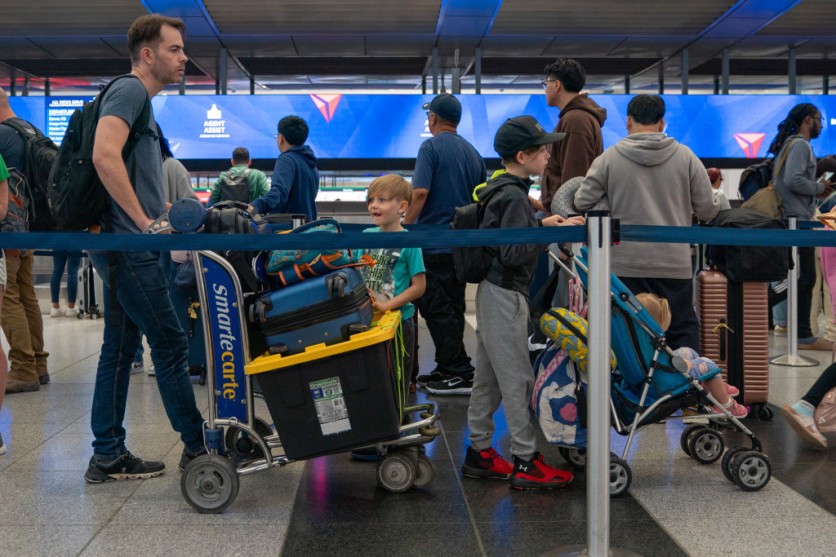The US Centers for Disease Control and Prevention (CDC) warns that COVID-19, RSV, and flu hospitalizations will likely surpass pre-pandemic levels. The worrying prediction comes before autumn and winter when respiratory infections like influenza and RSV are more prevalent in the US.
In response to this projected rise in respiratory disease, the CDC has teamed with Ginkgo Bioworks and XWELL to enhance traveler-based monitoring. The extended effort will debut at four of the seven participating airports in the United States to improve respiratory virus diagnosis and surveillance, according to VOA.
In this program expansion, Ginkgo and XWELL will monitor over 30 additional viruses, bacteria, and antibiotic resistance targets, including seasonal respiratory infections including influenza A and B, RSV, and SARS-CoV-2. The monitoring operation will start at John F. Kennedy, San Francisco, Boston Logan, and Washington Dulles airports.

Boosting Early Disease Detection Strategy
A public-private cooperation between the health department, Ginkgo's Concentric Biosecurity and Public Health Section, and XWELL's XpresCheck diagnostic testing service created this traveler-based monitoring program, wherein travelers voluntarily swab their noses, and airport wastewater is sampled. This proactive technique helps discover novel SARS-CoV-2 variants and other infections early, which is essential for epidemic management.
Over 360,000 air passengers have been registered in the Traveler Genome Sequencing (TGS) program as of September 2023, per the CDC's news release. Program participation is optional and anonymous, which includes flights from over 135 nations in all WHO regions.
In 2021, the TGS program began collecting nose swabs from overseas passengers at participating airports. The initiative has expanded as more tourists provide samples. With 6,000 tourists participating weekly, the organization has performed over 370,000 nose swabs. Over 14,000 samples from travelers from over 135 countries have been sequenced for examination.
The TGS program added wastewater monitoring to nasal swab sampling in August 2022. This unique method collects wastewater from one aircraft using a specialized gadget. Samples are transported to a lab for RT-PCR. In cases of positive pathogen tests like COVID-19, samples are sequenced full genome to identify variations.
According to Dr. Cindy Friedman, the head of CDC's traveler genomic surveillance program, "One sample from an aircraft coming from a geographic destination afar can give us information potentially about 200 to 300 people that were on that plane," as quoted by a CNN report.
A biotech firm Ginkgo Bioworks has worked with the US government to establish a worldwide biosecurity infrastructure to prevent, detect, and react to biological threats. Ginkgo Bioworks general manager of biosecurity Matthew McKnight stressed the necessity of monitoring systems like TGS in averting future health disasters. He noted that the goal is the implementation of similar programs globally "so you get much earlier detection than if somebody shows up at a hospital with something emerging."
COVID-19 Remains a Challenge
With wastewater testing and nasal swabbing, the TGS program found multiple COVID-19 variations, including Omicron BA.2, BA.3, XBB, and BA.2.86, six weeks before statewide reporting. The program currently monitors developing respiratory viruses as the cold and flu season begins.
Recently, COVID-19 hospitalizations were constant at slightly over 15,700 per 100,000 individuals for the week ending October 28. Over the previous week, well over 600 COVID-19-related fatalities have been documented.
National flu activity is rising modestly but remains low. In the week ending October 28, public health laboratories recorded 189 influenza cases, 77% influenza A and 23% influenza B.

ⓒ 2025 TECHTIMES.com All rights reserved. Do not reproduce without permission.




